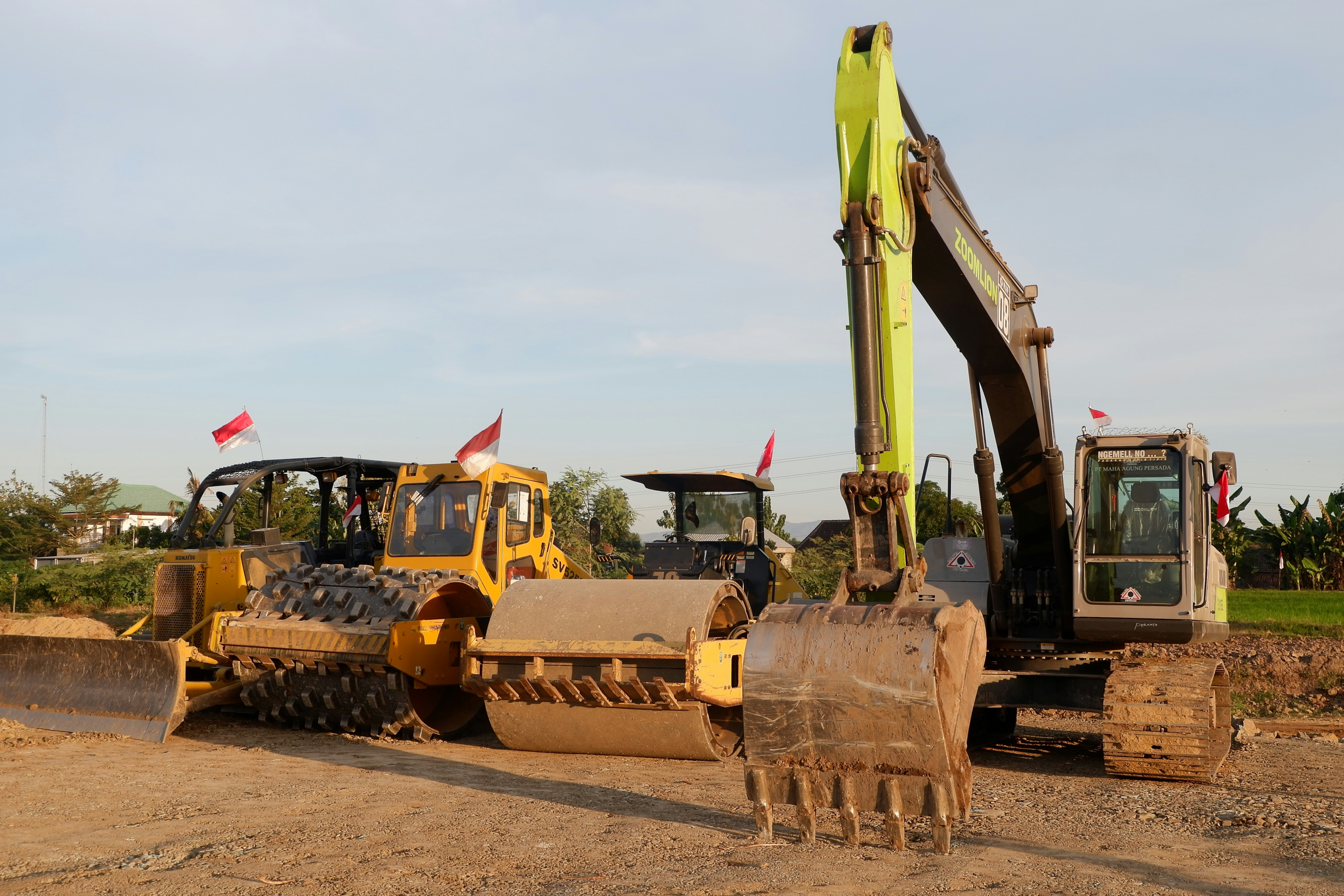
You have to think about solid digging when preparing for any large-scale construction. Selecting the right piece of heavy machinery is crucial for efficient and successful construction projects.
Often, the two machines at the forefront of the debate are backhoes and excavators. While both excel at digging, they have distinct strengths and weaknesses.
So, if you’re ready to embark on your next adventure armed with the right heavy machinery, let us dive in and uncover the differences between backhoes and excavators, ensuring you choose the perfect tool for the job.
What is a Backhoe Loader?
The Backhoe loader is a famously known heavy-duty machine for digging. It is also known as a “three-in-one machine”. Backhoe loaders are versatile pieces of equipment combining a tractor, a front-loading bucket, and a rear-mounted backhoe attachment.
As a piece of heavy equipment, the backhoe itself features a boom, backhoe arm, and loader bucket ideal for trenching, excavating, and loading tasks.
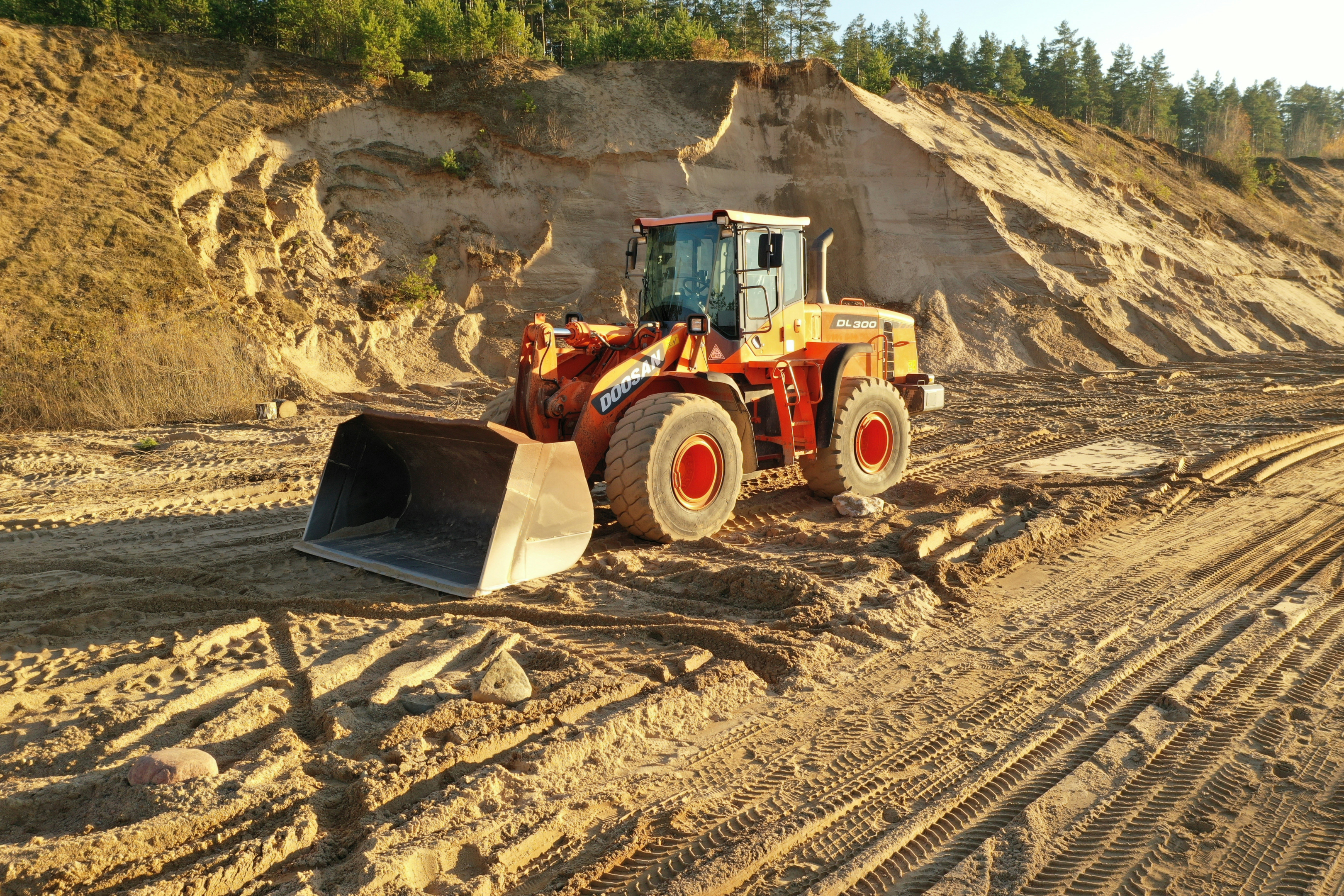
Backhoes are useful for smaller construction projects or in tight spaces because they are relatively compact compared to some other excavators.
Backhoes are also popular because they can handle so many different tasks, which means you don’t need multiple pieces of equipment.
A backhoe loader can do a lot of different things on a work site. Here are some common uses:
- Digging trenches: For things like pipes, cables, or drainage ditches.
- Demolition: Breaking up concrete or asphalt.
- Landscaping: Digging holes for planting trees or pools or moving large rocks.
- Construction: Digging trenches for foundations, footings, and utilities. Breaking up pavement or concrete.
- Loading trucks: With the front loader, it can scoop up dirt or gravel and dump it into a waiting truck.
What is an Excavator?
An Excavator is a dedicated digging machine consisting of a revolving platform, a hydraulic arm, and a bucket attachment.
This design allows for 360-degree rotation and superior digging power compared to a backhoe. Excavators excel at heavy-duty excavation, demolition, and material handling in various applications.
There are various types of excavators. These are used in job sites to improve job quality, reduce mistakes, and also to increase efficiency. Some of the different excavators are hydraulic excavators, wheeled excavators, etc.
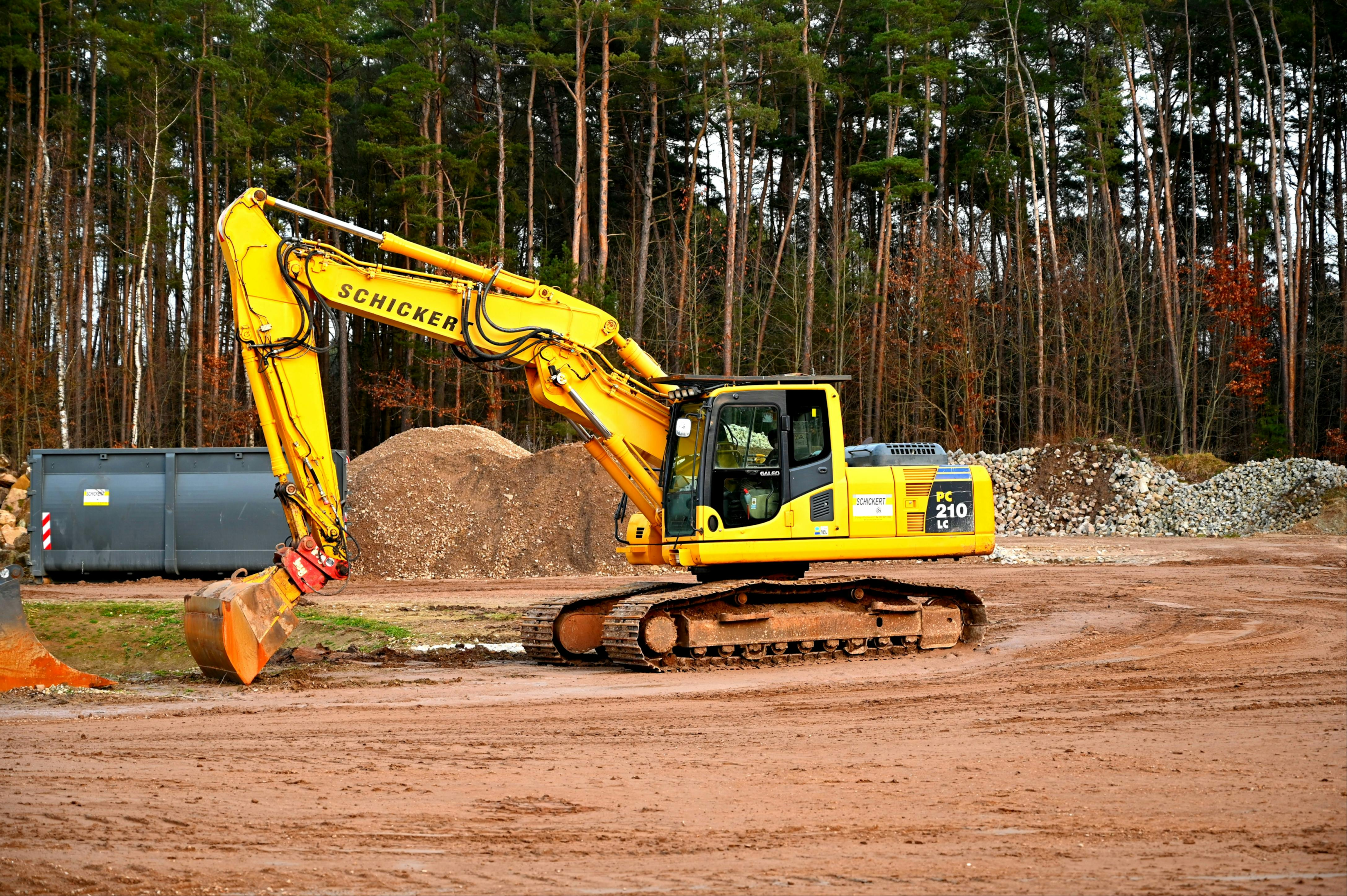
Excavators are incredibly versatile machines and have a wide range of applications. Some of the common uses of Excavators are given below:
- Land clearing and landscaping: They can be used to clear vegetation, level land, and prepare for construction projects.
- Mining: Larger excavators are used in large-scale mining operations to extract ore and minerals.
- Digging trenches: This is a foundational task for excavators, used for laying pipes, foundations, and drainage systems.
Backhoe Vs Excavator: What’s the Difference?
Both backhoes and excavators are digging machines, but they have some key differences that make them better suited for different tasks.
The major differences between a Backhoe and an Excavator are given below:
| Feature | Backhoe Loader | Excavator |
|---|---|---|
| Size | Smaller and lighter, more maneuverable in tight spaces. | Bigger and heavier, built for larger projects. |
| Primary Function | Backhoe loaders are used for multipurposes, such as digging, loading, etc. | Excavators are generally used for dedicated excavating |
| Maneuverability | Backhoe loaders have good maneuverability in tight spaces | Excavators have limited maneuverability |
| Digging Depth | Backhoe loaders come with moderate digging depth | They come with a deep digging depth |
| Digging Reach | They have limited digging reach | Excavators are famous for their superior digging reach |
| Power | Backhoe loaders have moderate digging power | Excavators have strong digging power |
| Attachments | Limited attachment options | Wide variety of attachments |
| Rotation | Backhoe loaders can have 180-degree swing rotations. | Excavators can easily have 360-degree rotation |
| Applications | Applications include: Trenching, light excavation, loading | Applications include: Heavy-duty excavation, demolition, material handling |
Pros and Cons of Backhoe
Backhoes are popular for their extensive use in versatility, operational ease, and cost-effectiveness. But they also have some disadvantages.
Pros of Backhoes
Some of the advantages of using backhoes are given as follows:
- Versatility: The backhoe truly shines in its ability to handle multiple tasks. The front loader efficiently scoops and loads materials, while the backhoe attachment, like the digging arm, tackles digging and trenching needs. This eliminates the need for multiple dedicated machines, saving time and resources on smaller projects.
- Cost-Effective: Backhoes generally have a lower purchase price compared to excavators. Additionally, their simpler design translates to lower maintenance costs. For occasional digging projects or those with tighter budgets, backhoes offer an attractive option.
- Maneuverability: Backhoes excel in confined spaces. Their articulated design and smaller size allow for better navigation in tight work areas, making them ideal for urban construction sites or working around existing structures.
- Simple Operation: Backhoe controls are generally less complex than those of excavators. This makes it easier for them to learn and operate, especially for less experienced personnel.
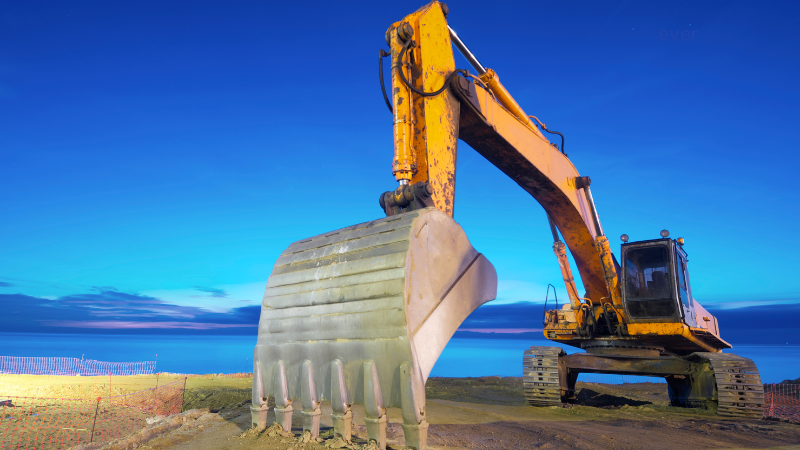
Cons of Backhoes
Some of the common drawbacks of using backhoes are discussed below:
- Limited Digging Depth and Reach: Backhoes have a moderate digging depth and reach compared to excavators. They struggle with deep excavations or extensive trenching projects. Their digging radius is also limited by the arm’s swing arc.
- Lower Digging Power: Backhoes are not powerhouses when it comes to digging. They are well-suited for softer materials like soil or light clay but might struggle with tougher terrain or heavily compacted earth.
- Limited Attachment Options: Backhoes can be equipped with some additional attachments like breakers or grapples, but the variety is significantly less compared to excavators. This limits their functionality for specialized tasks.
- Single-Person Operation: While backhoes are easier to operate, they are typically designed for single-person occupancy. This can be a disadvantage for tasks requiring multiple personnel for material handling or safety reasons.
Pros and Cons of Excavator
You can use an excavator to do similar things that you can do with a backhoe. But it also has some additional pros and cons.
Pros of Excavators
Some of the major advantages of using an excavator are:
- Unmatched Digging Power: Excavators boast superior digging force compared to backhoes. Their hydraulic systems and robust build allow them to tackle tough terrain, rip through compacted earth, and handle challenging materials with ease. This makes them ideal for deep excavations, foundation work, and large-scale construction projects.
- Exceptional Reach: Forget about the limitations of a backhoe’s swing arc. Excavators, with their 360-degree rotating platform and extending arm, can reach far and wide. This allows for efficient digging in hard-to-access areas, loading trucks from a distance, and precise material placement over a wider range.
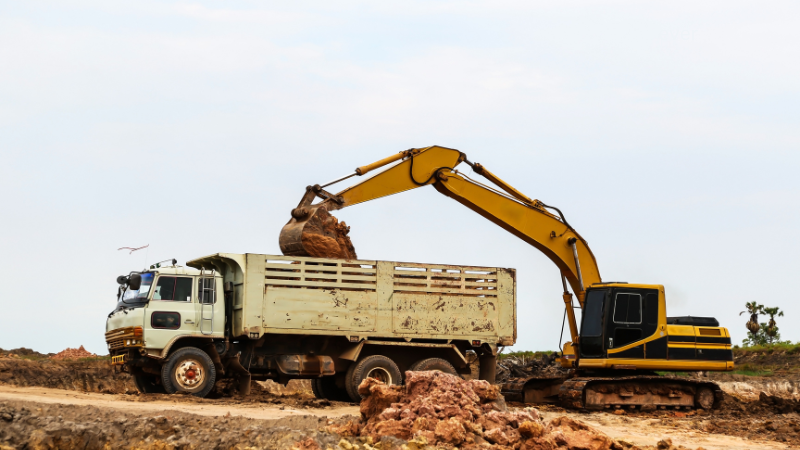
- Versatility with Attachments: Excavators are the kings of customization. The variety of attachments available is staggering, from hammers and breakers for demolition to grapples for grabbing and sorting materials and even auger drills for specialized applications. This allows a single excavator to handle a wider range of tasks, increasing efficiency and reducing reliance on additional equipment.
- Improved Safety: Modern excavators prioritize operator safety. Features like enclosed cabs with roll-over protection systems (ROPS), improved visibility, and advanced alarm systems create a safer working environment for the operator.
Cons of Excavators
Although an excavator has many advantages, there are some cons of using an excavator that you should be aware of:
- Higher Cost: The power and versatility of excavators come at a price. Compared to backhoes, they have a higher initial purchase cost and often require more complex maintenance, leading to higher operating expenses.
- Less Maneuverable: Their size and weight make excavators less maneuverable than backhoes. They are not ideal for tight workspaces or navigating around existing structures. Their large turning radius can also be a challenge in confined areas.
- More Complex Operation: Operating an excavator requires more training and skill compared to a backhoe. The controls involve managing multiple functions simultaneously, and precise coordination is necessary for safe and efficient operation.
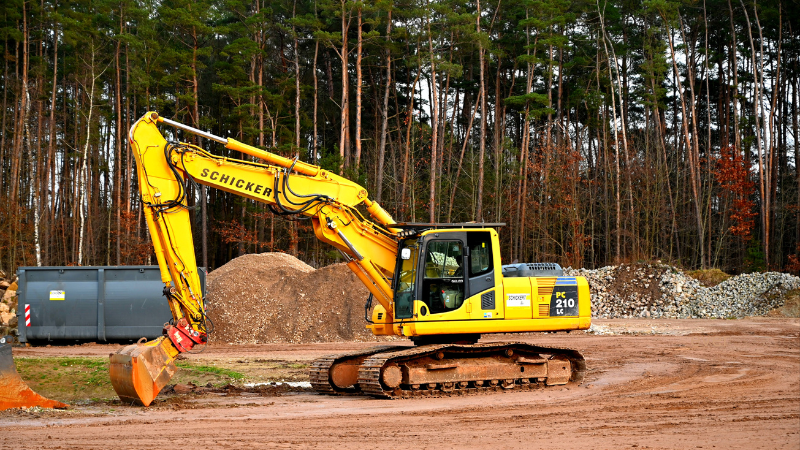
- Fuel Consumption: The sheer power of excavators translates to higher fuel consumption. This can be a significant factor for projects with extended durations or tight budgets.
Backhoe vs Excavator: How to Choose?
If you think about this issue systematically, backhoes are excellent for smaller projects, trenching, and loading and require less operator experience, whereas excavators excel at large-scale excavations, deep digging, and demolition and offer greater versatility with attachments.
Here are some factors to consider when choosing between a backhoe and an excavator:
- Project Requirements: Consider the job’s scale, depth, reach needed, and the type of material being excavated.
- Budget: Backhoes are generally more cost-effective, while excavators offer superior performance for a higher price tag.
- Working Conditions: Tight workspaces favor the backhoe’s maneuverability, while open areas might benefit from the excavator’s reach and power.
- Operator Experience: Backhoes are easier to operate, while excavators might require additional training.
FAQs
1. Can I Rent a Backhoe or Excavator Instead of Buying One?
Renting a backhoe or excavator is a much more common practice for most people than buying one. Unless you have a frequent need for excavation equipment, buying one won’t be cost-effective. Rental companies offer various-sized backhoes and excavators. You can easily rent the machine perfectly suited to your project’s needs rather than being stuck with one size that may not be ideal.
2. Which Machine Is Safer to Operate?
Both backhoes and excavators need proper training for safe use. However, backhoes might be a bit easier for beginners due to their smaller swing radius. The safest option really depends on the operator’s experience, project needs, and environment. If you’re unsure which to choose, seeking advice from a rental company or a certified operator is a good idea.
3. What Are Some Additional Factors to Consider?
When choosing between a backhoe and an excavator, consider factors like project requirements, operator skill level, and budget. A backhoe is better for light demolition, while excavators are suited for deep trenching. Those familiar with complex machinery may prefer excavators. Ultimately, your budget will largely determine your choice of equipment.
Conclusion
In conclusion, the choice between a backhoe and an excavator hinges on your project’s needs. Backhoes are great for smaller projects due to their versatility and cost-effectiveness, while excavators are better for large-scale tasks that require deeper digging and more power.
Considerations like budget, working conditions, and operator experience are crucial. Backhoes are more affordable and easier to handle, whereas excavators offer enhanced performance for a higher cost. Consulting with rental companies can help tailor the decision to your specific requirements, ensuring you choose the most efficient machine for your project.
Upgrade Your Construction Projects with Everstar Group Machinery!
Thinking about buying heavy construction equipment? Whether it is the versatility of a backhoe or the power of an excavator, make the right choice for your job site. Contact us today to discuss your project requirements and find the ideal equipment to boost efficiency and success. Don’t settle for less – take action now and elevate your construction endeavors to new heights!